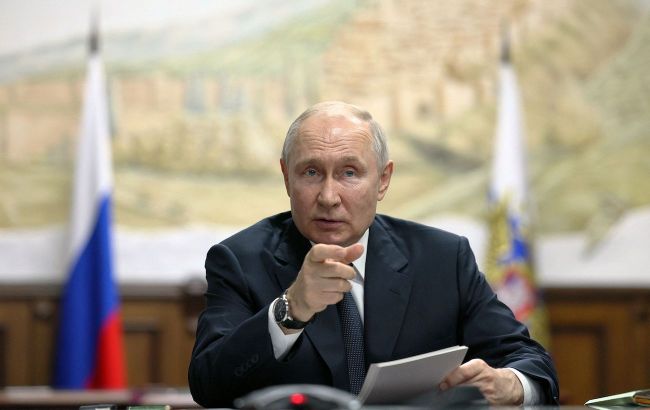Putin to unilaterally decide what Russians should and should not know - ISW
 Russian President Vladimir Putin (photo: Getty Images)
Russian President Vladimir Putin (photo: Getty Images)
On July 29, the Russian State Duma's Committee on Information Policy approved amendments to the law On Communications, which allowed Russian President Vladimir Putin to impose restrictions on access to information, according to the Institute for the Study of War (ISW).
If the amendments are adopted, Putin will be able to impose restrictions on access to information to protect the foundations of the constitutional order, morality, health, rights, and legitimate interests of others, and to ensure the defense and security of the state.
The adopted amendments will also grant the Russian federal censor Roskomnadzor the authority to manage communication networks and remove prohibited information at the request of the Russian Prosecutor General and his deputies.
ISW noted that if these amendments come into effect, Putin will become the direct arbiter of what behaviors and ideals are permitted or forbidden in the Russian information space.
Migrant Code
The Russian authorities are starting to link their efforts to suppress the information space with attempts to control the behavior of migrants.
On July 29, LDPR leader Leonid Slutsky proposed introducing a Migrant Code, which obliges migrants to integrate into Russian cultural, linguistic, legal, and behavioral norms.
The previously approved bill by the committee, which requires the de-anonymization of social media channels with more than 10,000 subscribers, also includes a provision limiting migrants from purchasing more than 10 SIM cards per person.
For ultranationalists and mobilization
The Institute believes that the Kremlin is taking these steps to appease the ultranationalist community, which largely supported the uprising of former Wagner Group leader Yevgeny Prigozhin.
Additionally, the mechanisms being created will assist the Russian Ministry of Defense in coercing migrants into military service.
However, the goal of stopping the growing threat of Islamic extremism in Russia is not a priority for the initiators of these changes, according to the ISW.
It is worth noting that Russia is expanding the official definition of extremism as part of the Kremlin's ongoing efforts to criminalize and suppress internal opposition. Opposition to the current actions and structure of the Russian government will be defined as ethnic intolerance towards Russians who support Kremlin policies and the war against Ukraine.
Furthermore, the Russian authorities are restricting access to YouTube.

